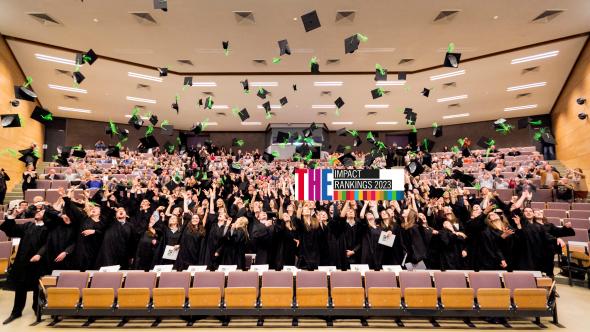UNamur scores very well here too, appearing between 301st and 400th place (out of 1625 institutions). Through these numerous collaborations with local, national and international partners, UNamur actively participates in the sharing of knowledge, expertise and experience aimed at achieving the SDGs.
UNamur has chosen to integrate more university rankings, in keeping with its values, in order to develop its reputation and international collaborations in particular.
UNamur's very good results in SDGs 1 and 16 highlight the significant investment of researchers and the institution in issues of social justice, inclusion, democracy and good governance. These issues are intrinsically linked to the values of the university, which is delighted to see its investment in these areas recognized, and sees it as an encouragement to invest even more in contributing to a fairer and more sustainable society. I can't resist making a link with the two ERC Starting Grants won by our political science colleagues. With Citizen_Impact, Vincent Jacquet is studying citizen participation and its impact on solving the crisis of democracy. With POLSTYLE, Jérémy Dodeigne analyzes the emergence of new political styles and, in particular, of a "Trumpian" style.
Find out more about their projects:

